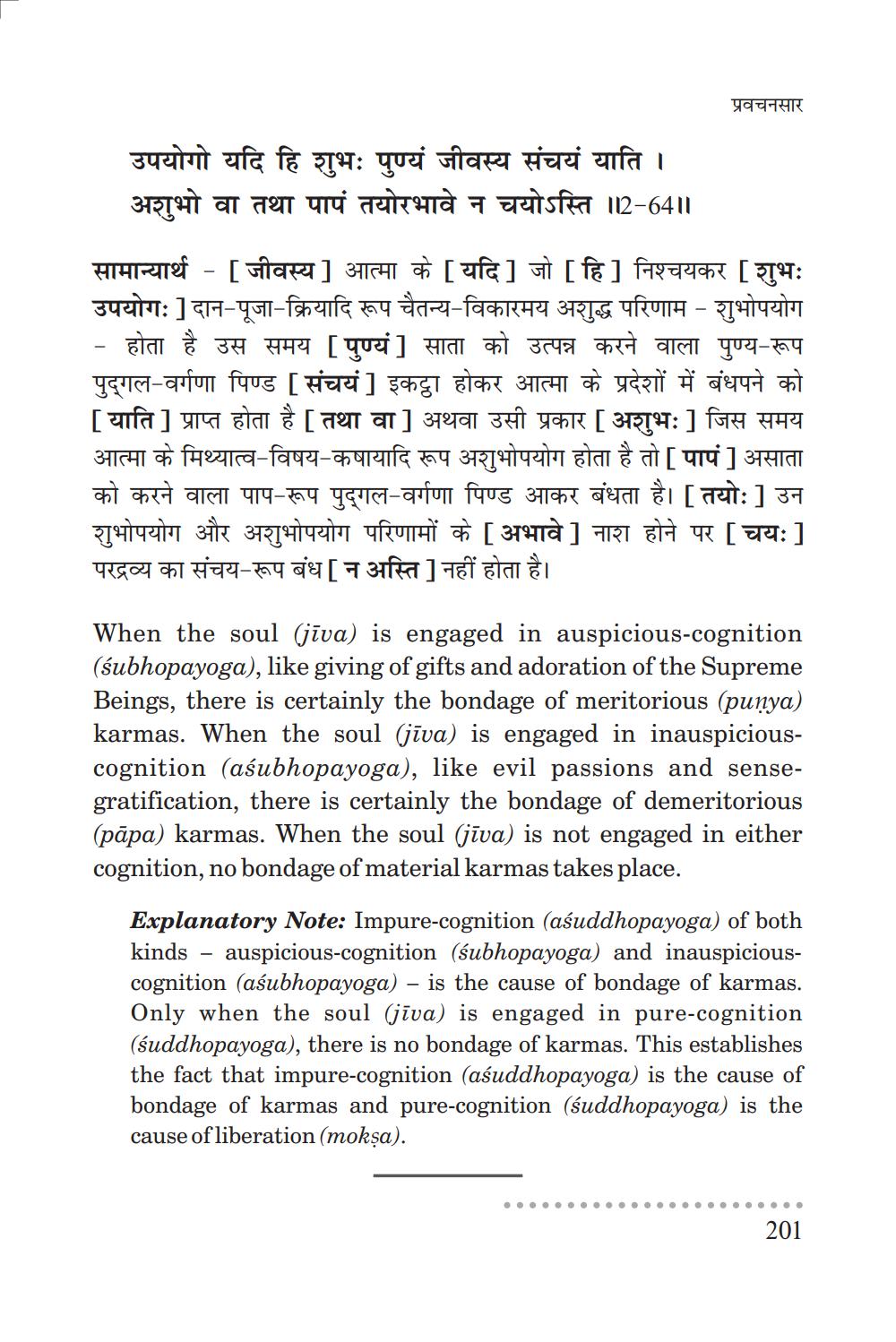________________
प्रवचनसार
उपयोगो यदि हि शुभः पुण्यं जीवस्य संचयं याति । अशुभो वा तथा पापं तयोरभावे न चयोऽस्ति ॥2-64॥
सामान्यार्थ - [जीवस्य ] आत्मा के [यदि] जो [ हि] निश्चयकर [शुभः उपयोगः ] दान-पूजा-क्रियादि रूप चैतन्य-विकारमय अशुद्ध परिणाम - शुभोपयोग -- होता है उस समय [पुण्यं] साता को उत्पन्न करने वाला पुण्य-रूप पुद्गल-वर्गणा पिण्ड [संचयं] इकट्ठा होकर आत्मा के प्रदेशों में बंधपने को [याति ] प्राप्त होता है [ तथा वा] अथवा उसी प्रकार [ अशुभः ] जिस समय आत्मा के मिथ्यात्व-विषय-कषायादि रूप अशुभोपयोग होता है तो [ पापं ] असाता को करने वाला पाप-रूप पुद्गल-वर्गणा पिण्ड आकर बंधता है। [तयोः ] उन शुभोपयोग और अशुभोपयोग परिणामों के [अभावे] नाश होने पर [चयः] परद्रव्य का संचय-रूप बंध [न अस्ति ] नहीं होता है।
When the soul (jīva) is engaged in auspicious-cognition (śubhopayoga), like giving of gifts and adoration of the Supreme Beings, there is certainly the bondage of meritorious (punya) karmas. When the soul (jīva) is engaged in inauspiciouscognition (aśubhopayoga), like evil passions and sensegratification, there is certainly the bondage of demeritorious (pāpa) karmas. When the soul (jīva) is not engaged in either cognition, no bondage of material karmas takes place.
Explanatory Note: Impure-cognition (aśuddhopayoga) of both kinds - auspicious-cognition (subhopayoga) and inauspiciouscognition (aśubhopayoga) – is the cause of bondage of karmas. Only when the soul (jīva) is engaged in pure-cognition (Suddhopayoga), there is no bondage of karmas. This establishes the fact that impure-cognition (aśuddhopayoga) is the cause of bondage of karmas and pure-cognition (śuddhopayoga) is the cause of liberation (moksa).
201




